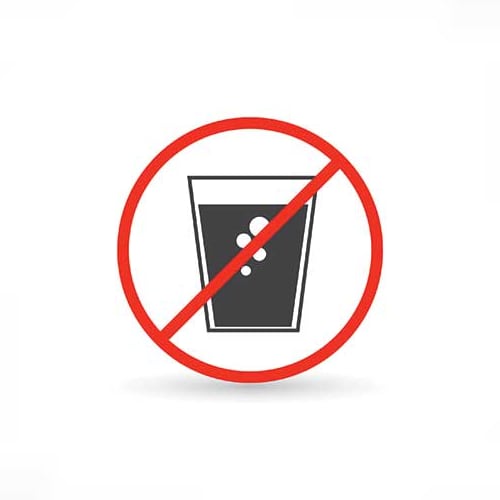 Who Is Shaping Behavior?
Who Is Shaping Behavior?
Who Is Shaping Behavior?

-
Main Ideas
Learning Objective
Understand how external factors, such as marketing and environment, shape daily behavior and influence health-related decisions.
Behavioral Objective
Recognize the subtle influences shaping personal choices and develop strategies to make more intentional, health-supporting decisions.
Key Thought
Our behaviors are often shaped by external forces, but by understanding these influences, we can make more mindful and healthier decisions.
-
Main Ideas
Learning Objective
Understand how external factors, such as marketing and environment, shape daily behavior and influence health-related decisions.
Behavioral Objective
Recognize the subtle influences shaping personal choices and develop strategies to make more intentional, health-supporting decisions.
Key Thought
Our behaviors are often shaped by external forces, but by understanding these influences, we can make more mindful and healthier decisions.
-
Terms
- Cognitive Fallacies
noun
Errors in thinking that distort, delete, or generalize information, affecting how decisions are made and actions are taken.
- Environmental Support
noun
Aspects of an individual's surroundings that either support or hinder positive behavior, such as vending machines offering unhealthy snacks.
- External Influences
noun
Forces outside an individual, such as marketing, environment, and social cues, that affect behavior and decision-making.
- Habit
noun
A repetitive behavior or action that is often automatic and driven by environmental cues or internal triggers.
- Motivation
noun
The internal or external desire to act in a certain way, often driven by needs, wants, or goals.
- Trigger
noun
A cue or prompt that initiates a behavior, encouraging immediate action.
-
Terms
- Cognitive Fallacies
noun
Errors in thinking that distort, delete, or generalize information, affecting how decisions are made and actions are taken.
- Environmental Support
noun
Aspects of an individual's surroundings that either support or hinder positive behavior, such as vending machines offering unhealthy snacks.
- External Influences
noun
Forces outside an individual, such as marketing, environment, and social cues, that affect behavior and decision-making.
- Habit
noun
A repetitive behavior or action that is often automatic and driven by environmental cues or internal triggers.
- Motivation
noun
The internal or external desire to act in a certain way, often driven by needs, wants, or goals.
- Trigger
noun
A cue or prompt that initiates a behavior, encouraging immediate action.
Introduction
Our decisions are shaped by numerous external factors, many of which operate below our conscious awareness. From the environments we live and work into the constant barrage of marketing messages, these influences play a significant role in our everyday choices. However, understanding how brands, advertisements, and even the foods around us impact our behavior can empower us to regain control of our decision-making and make choices that better support long-term health.
Our decisions are shaped by numerous external factors, many of which operate below our conscious awareness. From the environments we live and work into the constant barrage of marketing messages, these influences play a significant role in our everyday choices. However, understanding how brands, advertisements, and even the foods around us impact our behavior can empower us to regain control of our decision-making and make choices that better support long-term health.
Who is Shaping Behavior?
Our behavior is constantly shaped by external forces-primarily the environment and the marketing messages we are exposed to daily. Brands, subliminal advertising, and marketing tactics surround us, influencing our choices in subtle and not-so-subtle ways. For instance, a "Cravings Menu" offering cheap snacks can prompt impulse buying, leading to unhealthy consumption.
Consider the influence of marketing at the grocery checkout aisle, where items like king-size candy bars and sugary sodas are strategically placed for spontaneous purchases. The cost of these indulgences goes far beyond the price tag-contributing to long-term health consequences.
Motivation
Marketing often presents products as sources of joy, happiness, and security, creating an emotional motivation to purchase them.
Ability
By making products affordable and easily accessible, marketers encourage overconsumption, as affordability lowers barriers to indulgence.
Trigger
Constant messaging tells us that now is the perfect time to use a product, reinforcing immediate action.
These influences are everywhere.
Environmental Support
Let's consider an example. Dan, a 55-year-old diabetic with high blood pressure, made impressive progress in improving his health. Over several months, he reduced his blood pressure and lost 30 pounds by following simple principles, such as food journaling. Through tracking his meals and monitoring his blood sugar levels, he discovered which foods had the most significant impact on his blood sugar.
However, Dan's progress was undermined by the environment around him. Workplaces with vending machines and unhealthy food options, like sugary snacks and processed meals, provide negative environmental support. In Dan's case, the temptation of unhealthy food at work caused him to relapse, leading to a sharp spike in blood sugar levels and a loss of momentum in his health journey. This example serves as a cautionary tale, reminding us to be vigilant against such unhealthy environmental triggers.
This example shows how the environment plays a major role in shaping our behavior, often steering us toward unhealthy choices with long-term consequences.
Lifestyle Life Cycle
Chronic diseases like obesity, diabetes, and high blood pressure don't develop overnight. These conditions result from years of poor lifestyle choices that build up over time. The long feedback cycle for chronic diseases makes it difficult to connect everyday choices, like consuming unhealthy foods, with their eventual impact on health. However, understanding the long-term consequences of these diseases can instill a sense of urgency in making healthier choices.
At the core of this process is physiology-chronic inflammation, oxidative stress, and immune system dysfunction, often fueled by poor food choices. These physiological issues are influenced by our lifestyle, which is shaped by the small, repetitive behaviors we engage in daily. These habits, driven by the environment and our internal thoughts, ultimately determine our health.
Our behaviors are often automatic, embedded in our routine over time. For instance, an individual might develop a habit of eating a specific food because of repeated exposure to it in their environment. Over time, this habit becomes part of their lifestyle, even if it contributes to poor health outcomes.
Fallacies of Human Nature
Human nature can also distort our decision-making process. The brain performs three critical actions with information: distorts, deletes, and generalizes information. While these functions may have been helpful for survival in the past, they can hinder us in modern-day decision-making.
- Distortion: We may underestimate the time or effort required for tasks, leading us to misjudge challenges.
- Deletion: The brain often filters out key information, such as the negative consequences of certain behaviors.
- Generalization: We may make broad assumptions, like thinking "everyone is doing it" or "it's always like this," which can lead to faulty conclusions.
These tendencies can make it harder to assess our situation and plan accordingly accurately. Being aware of these cognitive fallacies allows us to take control of our decision-making, making more thoughtful and intentional choices that support better health.
Identifying External Influences
Objective: Increase awareness of the external factors that influence your behavior and decision-making.
Activity:
- Spend a day observing the advertisements, marketing messages, or environmental cues (e.g., vending machines, sales promotions) that influence your decisions.
- Write down at least three examples of how these influences affected your choices during the day.
- Reflect on how you can reduce the impact of these influences to make healthier decisions.
Environmental Auditing
Objective: Evaluate how your surroundings support or hinder your ability to make healthy choices.
Activity:
- Examine your home, workspace, or social environment for cues that lead to unhealthy behaviors (e.g., availability of junk food, convenience of sedentary activities).
- List the environmental factors that promote or discourage positive health behaviors.
- Make changes to your environment to better support your health goals (e.g., replacing unhealthy snacks with healthier options).
Recognizing Cognitive Fallacies
Objective: Understand how your thinking patterns can distort your decision-making.
Activity:
- Identify one recent decision where you may have distorted, deleted, or generalized information (e.g., underestimating the time needed for a task, dismissing important details).
- Reflect on how this thinking affected your decision and its outcome.
- Develop a strategy for avoiding similar cognitive fallacies in future decisions (e.g., gathering more accurate information, thinking through steps more carefully).
Course Outline
![]() Session Expired from Inactivity
Session Expired from Inactivity
Do you want to?
9618 Jefferson Highway, Suite D-191
Baton Rouge LA 70809-9636
(888) 424-0032 |
support@supplementrelief.com
* Disclaimer: This page is available exclusively for SupplementRelief.com clients. None of the information on this website is intended to replace your relationship with your healthcare provider(s). Nothing should be considered medical advice. The information, knowledge, and experience shared on this website are the opinions of SupplementRelief.com. This site and its content are intended to enhance your knowledge base as YOU MAKE YOUR OWN HEALTHCARE DECISIONS in partnership with your qualified health professional.
* These statements have not been evaluated by the Food and Drug Administration. These products and services are not intended to diagnose, treat, cure, or prevent disease.
* There is NO GUARANTEE OF SPECIFIC RESULTS for the products or services offered, and the RESULTS CAN VARY for each individual. Any results claimed by our customers are based on individual experiences that are unique and cannot be guaranteed.
FirstFitness Nutrition and NuMedica may be promoted and sold on the internet ONLY by Authorized Resellers who have been approved by and have registered their website domain with these companies. They strictly prohibit, and actively monitor, the UNAUTHORIZED SALE or RESALE of their products in ALL online public shopping portals including Amazon, eBay, and others and into other countries. All products purchased in SupplementRelief.com are for PERSONAL USE ONLY and CANNOT BE RESOLD to others. Please report violations of Reseller Policy directly to FirstFitness Nutrition at 800.621.4348 and to NuMedica at 800.869.8100.
The content and photographs on this website are copyrighted or Licensed Material and may not be downloaded for other than personal use. Republication, retransmission, reproduction, or any other use of the content or photographs is prohibited. ©2010-2024 SupplementRelief.com.
Are you sure you want to remove this item?








